Student Blog
What are OS/OT?
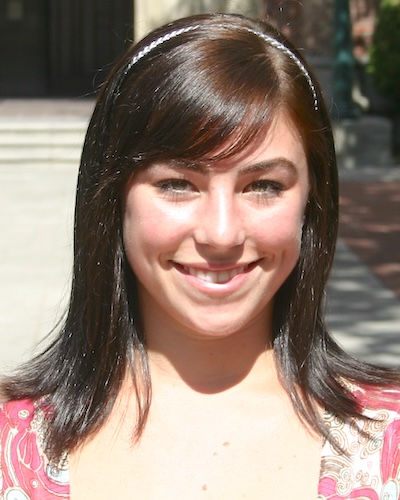
A Summer of Surprises ⟩
October 23, 2010, by Austen
Fieldwork What are OS/OT?
I was initially uneasy with my first summer fieldwork placement at an inpatient acute rehabilitation floor of a large hospital. I had no idea what to expect as I had no prior fieldwork experience in that setting. I was worried about not liking physical disabilities, not being good at it, and being overwhelmed in a hospital setting.
The inpatient rehab unit I was on was super intense as I had expected, and there were so many things to remember. I worked 4 days a week 10 hour days, arriving in time to see my first patient at 7am, and leaving around 5pm. By the time I got home, I was exhausted from mental, physical, and emotional overload. It was an 18 bed unit, with a large OT and PT gym area, fully equipped kitchen, and lots of activities resources to choose from. I observed the first couple weeks, then started brainstorming treatment ideas, eventually taking on one patient of my own. About half way through the 12 week internship I started treating an entire caseload of 5-6 patients in a day. I was treating on my own, with my clinical instructor either in another room with her own patient or down the hall at our desk. I had an amazing clinical instructor. She was supportive, encouraging, helpful, thorough, patient, and challenging and we got along great. She knew when to push me, she knew when to step in. She was an incredible teacher. I really lucked out.
In the observation phase, I remember watching my clinical instructor help a 380 pound woman diagnosed with “failure to thrive” to the commode, assist with perineal care as the patient was not able to reach, and also bathe every crease of the patient’s body to ensure thorough washing. I was worried about the day I would have to do that myself and I was quick to think a hospital is not a place I want to work later on. Essentially, I was scared to do something I had never done before. Not only was I hesitant about some of the responsibilities of the OT in an acute rehab setting early on, but I was critical of the overall hospital setting as I assumed more hands-on experience. It was pretty stressful and overwhelming from what I experienced, and it was really fast-paced. I was constantly moving, always on my feet, always thinking on the go. I worked up a sweat all day as I was constantly transferring patients, running around collecting items, running errands, etc. I would go home and collapse after a day at work. There was no leftover energy to do much of anything else.
Then the third to last week of fieldwork arrived. At that time I was treating my own caseload, completing all documentation, and feeling comfortable with my routine. A 10-hour day was still physically and mentally taxing on me, but it was doable. I found a schedule that worked for me, I found a way to manage my patients, I found a way to be organized. And I was having fun! It was at that moment that I could not only look at the checklist of things I had to complete, but I could enjoy being with my patients. I found a way to balance being the health care professional and the cheerleader, the coach and the friend. Something clicked. The last couple weeks were the best ones, because I felt like I knew what I was doing and I saw the difference I was making. My patients would go home saying “Thanks a million,” “I could not have done this without you,” and “I really appreciate all of your help.” That makes it all worth it.
Despite my initial trepidation, working in acute rehab was an amazing experience and I learned a number of lessons. It may seem cliche, but I learned to not always rely on first impressions. After the incident with that obese woman, I dreaded going into that hospital for the first couple weeks, worried about the first day I would have to get my hands dirty. However, once I stepped in and started treating, I never flinched again. I realized that my first impression that working in a hospital was not for me was too quick of a judgement. I sit in the classroom now wishing I was back on that acute rehab unit. My summer experience was way better than I ever thought it would be. I also learned to keep an open mind. Before I started, I told myself I was not going to like it and I was going to be bad at it. Much to my surprise, I loved my fieldwork there, and happened to do a great job! So, just because you think you may not like something or may be bad at it, give it a try anyway and you may surprise yourself like I did.
⋯
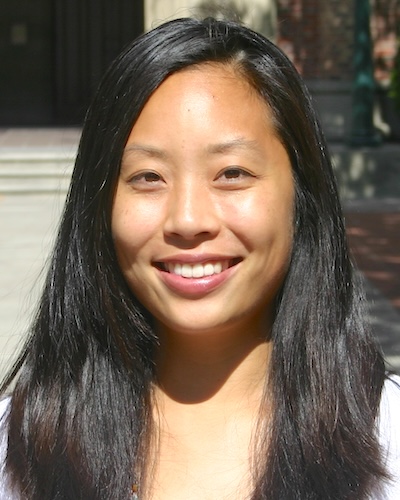
OT across the US ⟩
October 15, 2010, by Yao
What are OS/OT?
From California to the Midwest OT is everywhere. 😊
If you’re like me you’ve heard the infamous question “What is OT?” a million and a half times and each time I answer it’s a little different depending on the person I’m talking to in order to make sure it is something meaningful to them so they understand the scope of OT and what occupational therapists really do. This weekend I have the pleasure of going home for a friend’s wedding, back to Packer country (Wisconsin), YAY! I love it out here! Anyways on my flight from LAX to Milwaukee I started talking to the passengers around me about where we were headed and one passenger had made a comment about how UCLA was THE school to go to and USC was just for spoiled children. Well I had to say something! I piped up and politely mentioned that I was a graduate student at USC and I was very proud to go to USC. He asked what I was going for and why I didn’t choose UCLA and my simple answer was that USC was not only a top school in the field number 1 on the West coast and 1-3 Nationally and internationally but UCLA didn’t have a graduate program in occupational therapy. That struck a chord with him as he recently had his knees replaced. And all of a sudden he dove into a story about his occupational therapists, what he knew about the profession and what areas we could practice in. It was like listening to myself talk to someone when they asked “what is occupational therapy?” He was so passionate about how much OT had helped in his recovery and how it was the only therapy that he looked forward to. Then in all seriousness he looks at me and said “My OT was a Trojan and she changed my life.”
My heart immediately melted, I wanted to cry. Then we continued that conversation about where I was and how my studying was going. But hearing that really re-validated my love for our profession even though its a struggle sometimes to explain how OTs can really make a difference it’s all worth it when you hear that you made a difference in at least one person’s life. So even when it feels like we’re fighting an uphill battle getting people exposed to Occupational Therapy and all it has to offer remember that we’re in an amazing profession that really changes lives. 😊
⋯
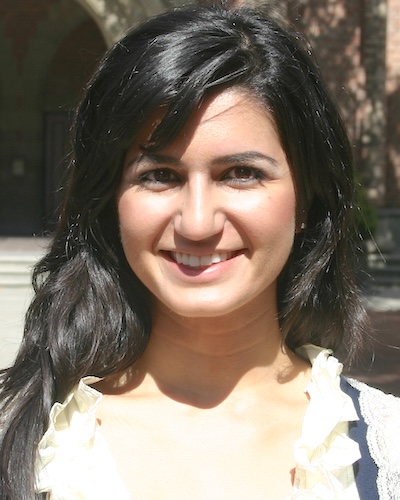
Ghana ⟩
October 11, 2010, by Helen
Fieldwork International What are OS/OT?
As a first year in the graduate program at USC, you have the opportunity to travel to Ghana and have a pediatric physical disabilities fieldwork experience. I had an amazing experience in Ghana and would love to return and work with the children there in the future. It was exactly this time last year that I was just deciding if I wanted to apply to travel to Ghana or not and I wanted to share some of my experience with those who are currently in the process of deciding whether or not they’d like to travel there this year. 😊 I learned more than I could have ever imagined from the children I met in Ghana and I highly recommend the trip to the first years in the graduate program.
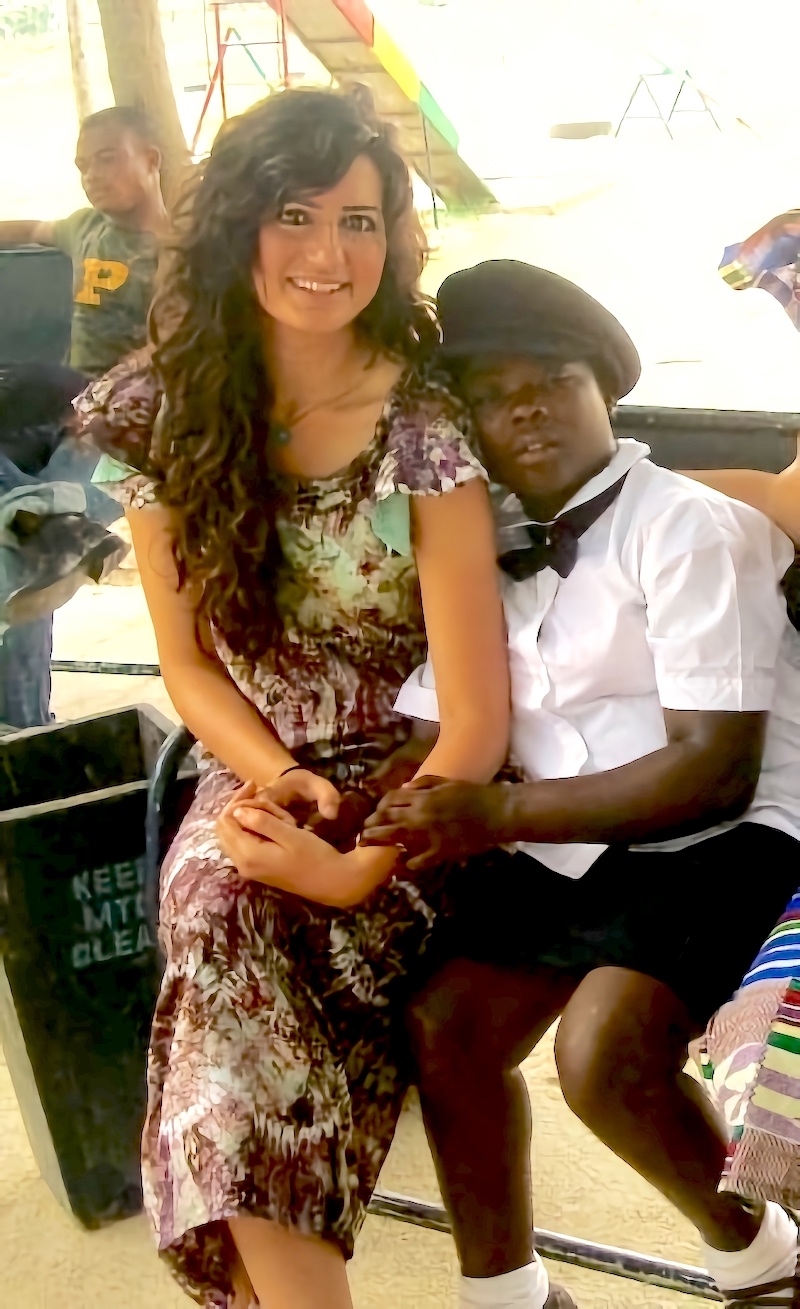
After a long trek from the airport, we stepped off our bus at Mephibosheth and the quiet was immediately broken by the laughter of children from behind their boarding hall window. This laughter was my source of energy for the entirety of my trip to Ghana. I had difficulty sleeping the first couple days I was in Ankamu and the Gomoa District because I was so excited to be engulfed by this entirely new place and people. I wanted to know every child’s history, how they had come to be at this facility, and I was so anxious to implement a treatment plan with students of my own. Little did I know, these children who I would be spending the following days with, would forever impact my value of time, family, resilience, interdependence, and the immeasurable value of healthcare access and occupational engagement.
Mephibosheth is the only facility in Ghana that addresses the needs of children with physical and mental disabilities. Pastor Joe and his wife Andrea have created this boarding school in the Gomoa District as a safe haven and source of occupational hope for children who are otherwise often unacknowledged by their society. As a boarding school with minimal in home aid from the school faculty, the children have adopted interdependency as their form of survival.
The practice of occupational therapy in the United States is defined by the American Occupational Therapy Association (AOTA) as being a science driven, evidence based profession that enables people of all ages to live life to its fullest by helping them promote health and prevent — or live better with — illness, injury, or disability (AOTA). Occupational therapists intervene to maximize quality of life at the early intervention, acute, or rehabilitation stages of development. As occupational therapists strive to promote independence and quality of life for clients experiencing an array of conditions, I was curious to see how therapy regarding independence in self-care would translate to the Ghanaian culture which so beautifully valued interdependence.
The day we sat quietly listening to Andrea, Pastor Joe’s wife, give us bullet points on each child’s medical and social histories, I mechanically wrote bullet points on the notes being dictated. My first notes read, “*Clara (name has been changed) — cage for six years, malnourished, Osteoporitic, estimated around 17-18 years old, has seizures, parents ashamed — guardianship given to German orphanage.” I couldn’t help but be in shock that I was just laughing for ten minutes outside with this same young lady about how she loves sunglasses and the ocean. I was quieted by the incredible confidence and happiness she exuded and humbled by how resilient this young woman who is actually 23 years of age is. My three pages of bullet form medical history notes about each child, have to this day not fully taken form in my mind.
I was baffled by the type of treatment plan I would create for our personal student *Kate, her bullets read “16-17 years, psych history, knocks doors to tell problems, taken to exorcism prayer camp, bit her breast/self mutilation, number one corn husker.” Knowing what resources were available to us, my partner and I attempted to brainstorm multiple activities we could do with her and made it our goal to give her as much positive attention as possible while trying our best to share our energy fairly between the two children we were assigned. Upon returning from Ghana, one of my most disheartening thoughts is that the entire two weeks I was there, I was unable to have a meaningful conversation with this young lady. I know that there was a language barrier in our attempts to talk to *Kate and that she was most likely not properly medicated and most definitely not in the most ideal place to address her needs, however I still felt a sense of responsibility to emotionally connect with this girl who would demand an apology from me every two minutes for looking at her, brushing against her, accidentally smiling a second too long at her, or not holding her hand when she wanted.
On the flight back from Ghana, I read our personal account readings about how practitioners should address mental health illnesses, emotional intelligence, and the value of having a trusted friend in the process of alleviating symptoms experienced by patients who have mental health disorders. As I read these personal account readings, I felt increasingly motivated to inspire change for people like *Kate who had suffered years of misunderstandings, physical and emotional trauma, and the trauma of social isolation. It seemed to me that everything these personal accounts told of what should not be done to address mental health needs was what *Kate had experienced and it breaks my heart to know that there is a very small likelihood that she will ever get the medical attention that the she truly deserves.
Pastor Joe preached on the value of being self-disciplined and having peer support. The value of leading a disciplined life was the topic of his three talks I attended at church. Leading a disciplined life means being able to practice self respect and through doing so and truly taking into consideration what is in one’s own best interest, is it possible to truly extend care and compassion for your neighbor. Pastor Joe preached that one must never forget that “there is always someone higher than you and someone lower. No one is above all.” This idea echoed in my mind as I observed the kids interacting with one another. Those who had increased range of motion helped the others get dressed, those who were able to read, helped pass out shirts with the proper labels, the kids who were doing better cognitively had the responsibility of passing out snacks. Everyone fed one another, wheeled one another, dressed one another, and shared every possession so openly. There is a set system of checks and balances among the kids at Mephibosheth. Each child has a role, character, and identity within their Mephibosheth family.
My last night at Mephibosheth, I had a conversation with one of the students that truly exemplifies the charisma of the children we worked with. I said to *Clara, “Your birthday is coming up! If you could do anything in the world for your birthday, what would that be?” and she replied with a smile “I would go to the beach and have a cola with my orphanage mother.” The children we worked with did not have the luxury of drinking soda and the beach was less than a mile away from their facility. The children travel to the beach once a year when the USC students visit, due to the need for adequate supervision/volunteers to travel with. The children I was so fortunate to have spent time with at Mephibosheth have forever influenced my thoughts, values, and ambition to decrease discrepancies in health care access.
⋯
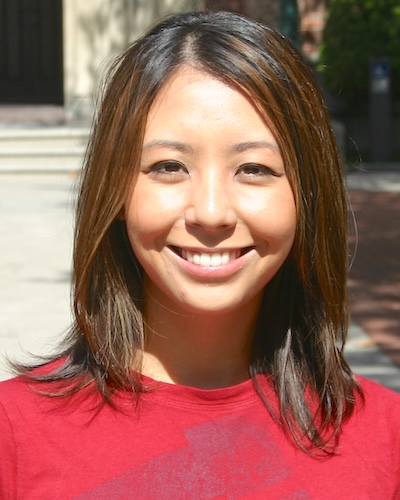
Practicing Occupation at a Senior Facility ⟩
October 5, 2010, by Carissa
Fieldwork What are OS/OT?
Occupation as a treatment modality.
During this past summer fieldwork at a senior facility, I found importance of putting into practice what all of our teachers have drilled into us — using meaningful activity not only as an ends for our treatment but as a means to get there. While this idea is easier to understand with kids, as play is meaningful to most children, it definitely takes a second or third thought when dealing with older adults. What is the individual’s goal? What motivates one person doesn’t necessarily motivate someone else. After using an interest checklist to see what mattered to my clients, I found that many of them loved to dance. Without a second thought, with the assistance of my clinical instructor, we set up an occupational therapy dance group. We tried to incorporated everyone who found dancing to be meaningful, including those who had experienced strokes, those with constant pain, those in wheelchairs, those with arthritis, those with Alzheimer’s, and those who just wanted to lose weight. The dance sessions consisted of mainly merengue and cumbia, with everyone voting for these latin beats. There was also opportunity for patients to bring in some of their own music and/or instruments. We found regulars in a group of people who did not regularly attend OT, people who attended mainly for a hot pack, or people with a tendency to be unmotivated for therapy. After about 5 weeks, with sessions 2x/week for 30 minutes, people were reporting decreased pain and losing weight (about 5 pounds!). Using occupation sets up for success. Not only did the clients enjoy themselves and benefit from treatment, but it was also therapeutic for me. I loved it! This made for an exciting summer far different from the typical 9-5 desk job.
⋯

Why Occupational Therapy? ⟩
September 30, 2010, by Yao
What are OS/OT?
I actually started off wanting to be a lawyer, then a forensic scientist, then a physical therapist and finally after all that I was introduced occupational therapy and found my passion. My mother introduced the profession to me because she was aware at the time that I wasn’t sure about my career decision. She noticed that the occupational therapists at her facility were always fun to be around and thought it would be a good idea for me to shadow them for a day. If anything I could at least have a day of my summer entertained by hilarious people who happened to be occupational therapists. During my observation it didn’t seem like therapy at all the whole time the residents were talking about what they were doing when they were my age all the while working on everyday activities like dressing. Everyone was always laughing and every single resident that day told me that they loved coming to occupational therapy because they felt as if they were hanging out with friends and happened to be working on their skills while visiting. Later that day I asked one of the head occupational therapists there what they liked most about being an occupational therapist and he mentioned that he loved occupational therapy because at the end of the day its all about the person. The treatment is based on the resident and when all is said and done it’s a profession that empowers the patients/residents with skills and encouragement that allow them to be the master of their own treatment. At that moment it all came together because the idea of empowering people to help themselves had been a theme throughout my life and one of the lenses I use in my interpretation of the world and interaction with people. That’s why I chose occupational therapy and ever since I’ve never considered another profession other than occupational therapy.
⋯





